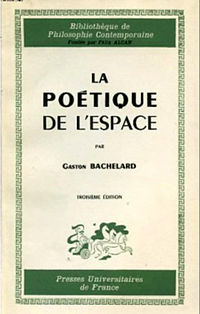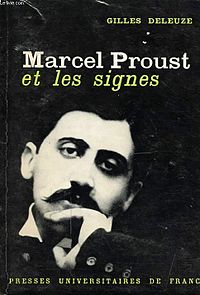 W
WThe Birth of the Clinic: An Archaeology of Medical Perception, by Michel Foucault, presents the development of la clinique, the teaching hospital, as a medical institution, identifies and describes the concept of Le regard médical, and the epistemic re-organisation of the research structures of medicine in the production of medical knowledge, at the end of the eighteenth century. Although originally limited to the academic discourses of post-modernism and post-structuralism, the medical gaze term is technical jargon in graduate medicine and social work.
 W
WDifference and Repetition is a 1968 book by the French philosopher Gilles Deleuze. Originally published in France, it was translated into English by Paul Patton in 1994.
 W
WNietzsche and Philosophy is a 1962 book about Friedrich Nietzsche by the philosopher Gilles Deleuze, in which the author treats Nietzsche as a systematically coherent philosopher, discussing concepts such as the will to power and the eternal return. Nietzsche and Philosophy is a celebrated and influential work. Its publication has been seen as a significant turning-point in French philosophy, which had previously given little consideration to Nietzsche as a serious philosopher.
 W
WNoise: The Political Economy of Music is a book by French economist and scholar Jacques Attali concerning the role of music in the political economy.
 W
WThe Poetics of Space is a 1958 book about architecture by the French philosopher Gaston Bachelard. The book is considered an important work about art. Commentators have compared Bachelard's views to those of the philosopher Martin Heidegger.
 W
WProust and Signs is a book by the philosopher Gilles Deleuze, in which the author explores the system of signs within the work of the celebrated French novelist Marcel Proust. It was first published in 1964; its second edition (1972) added an eighth concluding chapter, and its third edition (1976) appended an entire second part. The book was translated into English by Richard Howard.
 W
W"Que sais-je?" (QSJ) is an editorial collection published by the Presses universitaires de France (PUF). The aim of the series is to provide the lay reader with an accessible introduction to a field of study written by an expert in the field. As such, they are a good example of haute vulgarisation. The sentence "Que sais-je?" is taken from the works of French essayist Michel de Montaigne.
 W
WSpeech and Phenomena: And Other Essays on Husserl's Theory of Signs, or Voice and Phenomenon: Introduction to the Problem of the Sign in Husserl's Phenomenology, is a book about the phenomenology of Edmund Husserl by the French philosopher Jacques Derrida, published in 1967 alongside Derrida's Of Grammatology and Writing and Difference. In Speech and Phenomena, Derrida articulates his mature relationship to Husserl, putting forward an argument concerning Husserl's phenomenological project as a whole in relation to a key distinction in Husserl's theory of language in the Logical Investigations (1900–1901) and how this distinction relates to his description of internal time consciousness. Derrida also develops key discussions of the terms deconstruction and différance. Derrida commented that Speech and Phenomena is the "essay I value the most". Derrida's best known work on Husserl's phenomenology, it is widely considered one of his most important philosophical works.
 W
WSpinoza: Practical Philosophy is a book by the philosopher Gilles Deleuze, in which the author examines Baruch Spinoza's philosophy, discussing Ethics (1677) and other works such as the Tractatus Theologico-Politicus (1670), providing a lengthy chapter defining Spinoza's main concepts in dictionary form. Deleuze relates Spinoza's ethical philosophy to the writings of Friedrich Nietzsche and Willem van Blijenbergh, a grain broker who corresponded with Spinoza in the first half of 1665 and questioned the ethics of his concept of evil. The work has received praise from commentators.